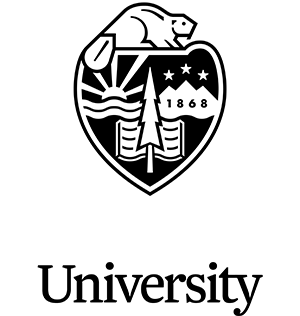Civil Rights Guidelines
Our program was built on a foundation of equity, diversity, access, and inclusion, as can be seen in our mission, vision, and values. These values are essential to who we are and to what we do.
And we show this in our work to help public schools and outdoor school providers make their outdoor school programming better for all students.
We work to improve outdoor school programming by:
- Helping schools and outdoor school providers include every student in outdoor school and helping them make outdoor school a positive, inclusive, and welcoming experience.
- Helping schools to make sure every student can take part.
- Providing training and support to create teaching materials that match our mission, vision, and values.
- Giving schools and outdoor school providers tools to assess and improve the fairness, inclusiveness, and accessibility of outdoor school in Oregon.
- Requiring, to receive funding, that schools and outdoor school providers follow the state and federal laws that don’t allow discrimination.
The law that established the OSU Outdoor School program (ORS 327.390) directs us to require outdoor school be welcoming, accessible, and inclusive for everyone. AND, we are all responsible for using these funds in a way that follows all federal, state, and local laws.
Districts and schools receiving our funds must follow the terms in their Intergovernmental Agreements with OSU, which they sign prior to receiving money for outdoor school. This agreement says that districts and schools must follow all federal, state, and local laws, and the school districts receiving our funds should work to make sure that students who don't usually have access to outdoor school opportunities are included and welcome in their district’s outdoor school program.
The OSU Extension Service Outdoor School program is part of Oregon State University, which is dedicated to making a fair and inclusive environment for everyone. All people involved in university programs and activities have the right to participate without discrimination. Discrimination affects everyone at outdoor school negatively, so the OSU Outdoor School team reports any complaints we receive (related to actions of bias and discrimination) to the OSU Office of Equal Opportunity and Access. If the complaint involves school staff, we strongly encourage the complaint be reported to the School District’s Superintendent and/or the District’s Civil Rights Officer, and if it relates to Civil Rights, we strongly encourage the complaint be reported to the Oregon Department of Education’s Civil Rights Compliance office and the Oregon Teacher Standards and Practices Commission as listed below.
It is important to us that all students, parents and guardians, teachers, outdoor school providers and sites, and district administrators know:
- about the OSU rules and federal, state, and local laws that protect them.
- there is no statute of limitations for filling a complaint about an act of discrimination.
- the OSU Outdoor School program offers help and resources to anyone who needs more information or training.
It’s also important that everyone involved in outdoor school know that OSU doesn't allow our programs to treat anyone involved in the program unfairly based on age, race, color, religion, sex, sexual orientation, gender identity, national origin, citizenship, marital status, pregnancy, disability, genetic information, protected veteran status, or any other reason protected by the law or university rules. You can learn more about this on OSU's Discrimination and Discriminatory Harassment webpage.
What is Bias and What is Discrimination or Discriminatory Harassment?
OSU defines bias as an act directed toward a person or group based upon their background or identity (actual or perceived) including: age, color, disability, gender identity or expression, marital status, national origin, race, religion, sex, sexual orientation, or veteran status.
Bias can occur anywhere, and it creates a hostile working, learning or living environment and frequently has a negative psychological, emotional or physical effect on the person or group it’s directed toward. While bias is not illegal, it is not permitted in OSU sponsored programming.
Discriminatory harassment is when someone treats another person badly because of their protected status, like their race or gender, and it creates a hostile or offensive environment. This kind of harassment can be words, actions, or even threats. It doesn't have to be on purpose, directed at a specific person, or happen multiple times to be against the law.
Discrimination is when someone, whether on purpose or not, treats someone differently because of their protected status. Protected statuses include age, race, color, religion, sex, sexual orientation, gender identity, national origin, citizenship, marital status, pregnancy, disability, genetic information, and protected veteran status or service in the military.
We want to emphasize that, if they need it, we are here to help school districts with staff training. Our mission is to make sure every young person in Oregon can enjoy an outdoor school experience that is transformative, welcoming, and free from discrimination, harassment, or abuse of any kind. If you have questions, feel free to contact us using the link at the top of this page.
For more information about our reporting policies and getting support, please visit the following websites.
- Bias Incident Response FAQ
- Bias Incident Response Submission Form
- Filing a Civil Rights Complaint through Oregon Department of Education
- Filing a Public or District Complaint through the Oregon Teachers Standards and Practices Commission

